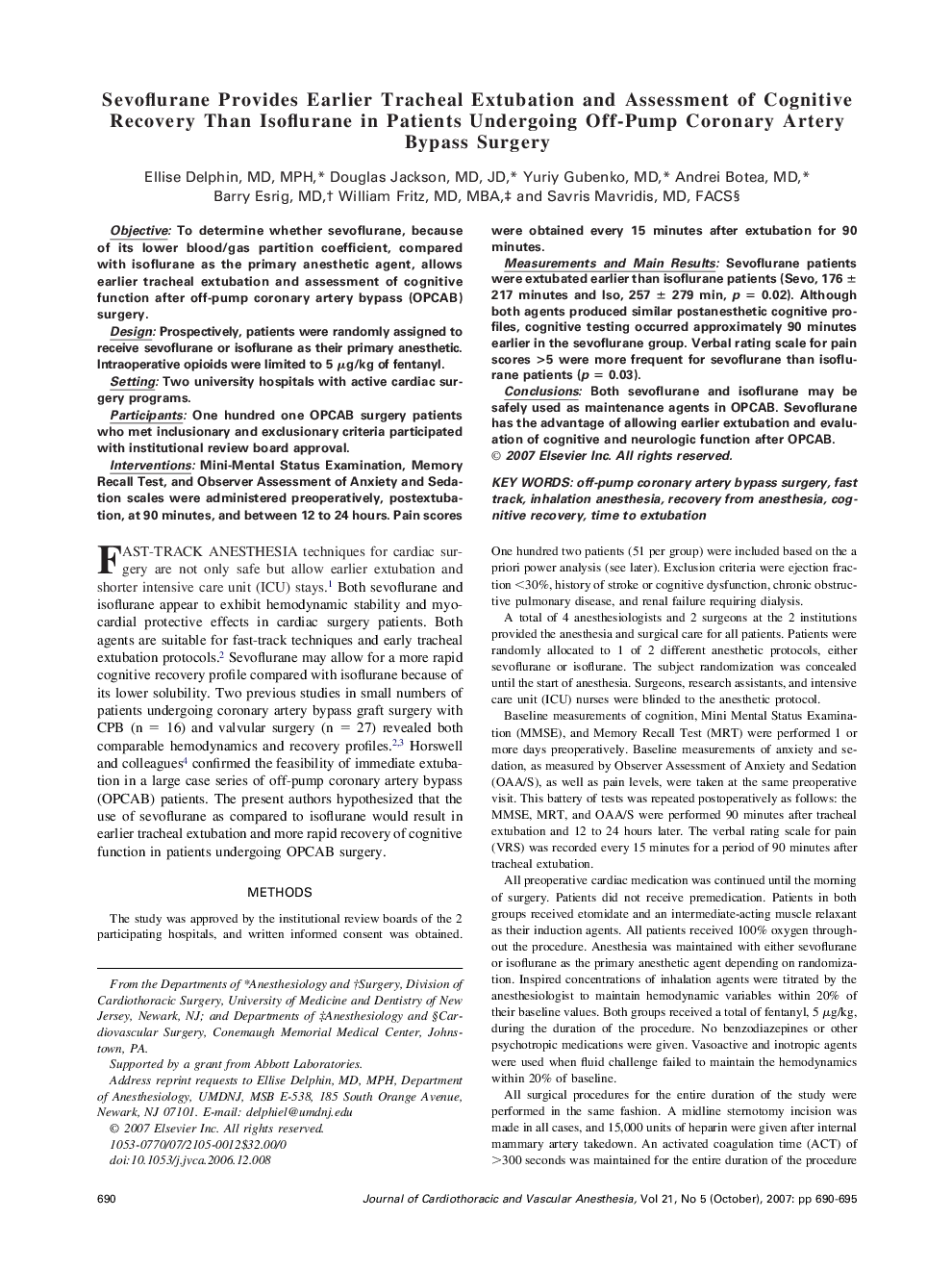| Article ID | Journal | Published Year | Pages | File Type |
|---|---|---|---|---|
| 2761023 | Journal of Cardiothoracic and Vascular Anesthesia | 2007 | 6 Pages |
Objective: To determine whether sevoflurane, because of its lower blood/gas partition coefficient, compared with isoflurane as the primary anesthetic agent, allows earlier tracheal extubation and assessment of cognitive function after off-pump coronary artery bypass (OPCAB) surgery.Design: Prospectively, patients were randomly assigned to receive sevoflurane or isoflurane as their primary anesthetic. Intraoperative opioids were limited to 5 μg/kg of fentanyl.Setting: Two university hospitals with active cardiac surgery programs.Participants: One hundred one OPCAB surgery patients who met inclusionary and exclusionary criteria participated with institutional review board approval.Interventions: Mini-Mental Status Examination, Memory Recall Test, and Observer Assessment of Anxiety and Sedation scales were administered preoperatively, postextubation, at 90 minutes, and between 12 to 24 hours. Pain scores were obtained every 15 minutes after extubation for 90 minutes.Measurements and Main Results: Sevoflurane patients were extubated earlier than isoflurane patients (Sevo, 176 ± 217 minutes and Iso, 257 ± 279 min, p = 0.02). Although both agents produced similar postanesthetic cognitive profiles, cognitive testing occurred approximately 90 minutes earlier in the sevoflurane group. Verbal rating scale for pain scores >5 were more frequent for sevoflurane than isoflurane patients (p = 0.03).Conclusions: Both sevoflurane and isoflurane may be safely used as maintenance agents in OPCAB. Sevoflurane has the advantage of allowing earlier extubation and evaluation of cognitive and neurologic function after OPCAB.
